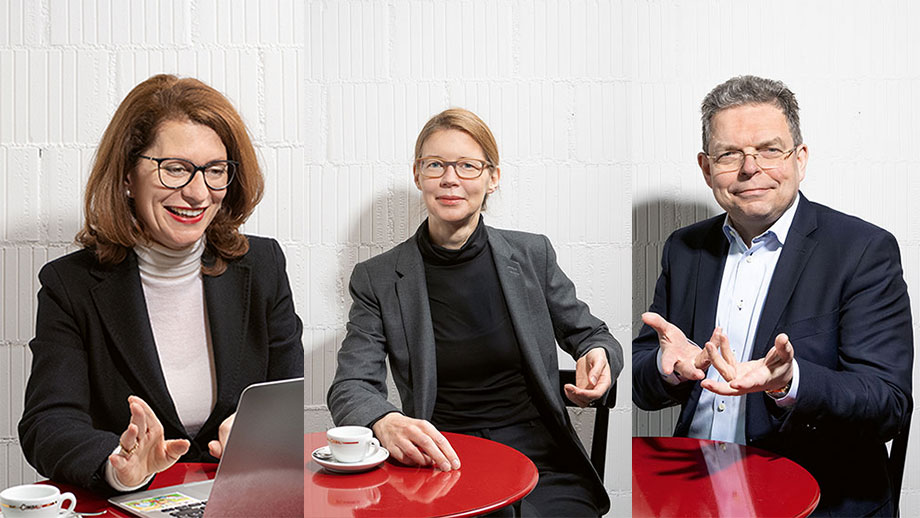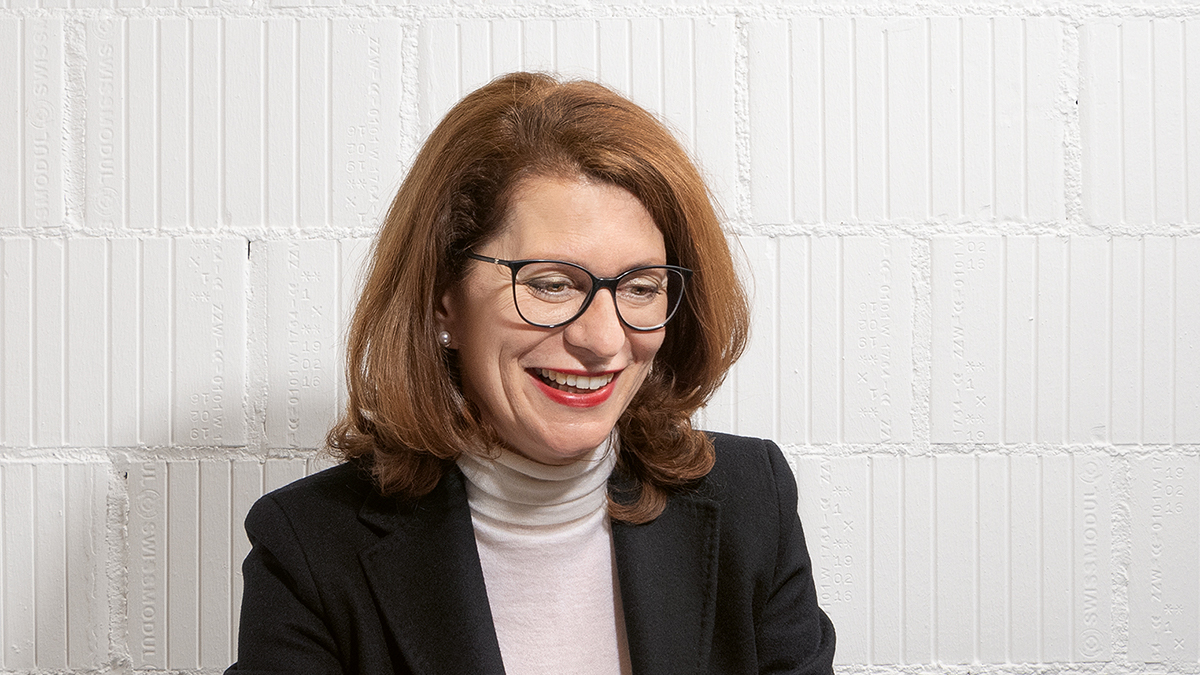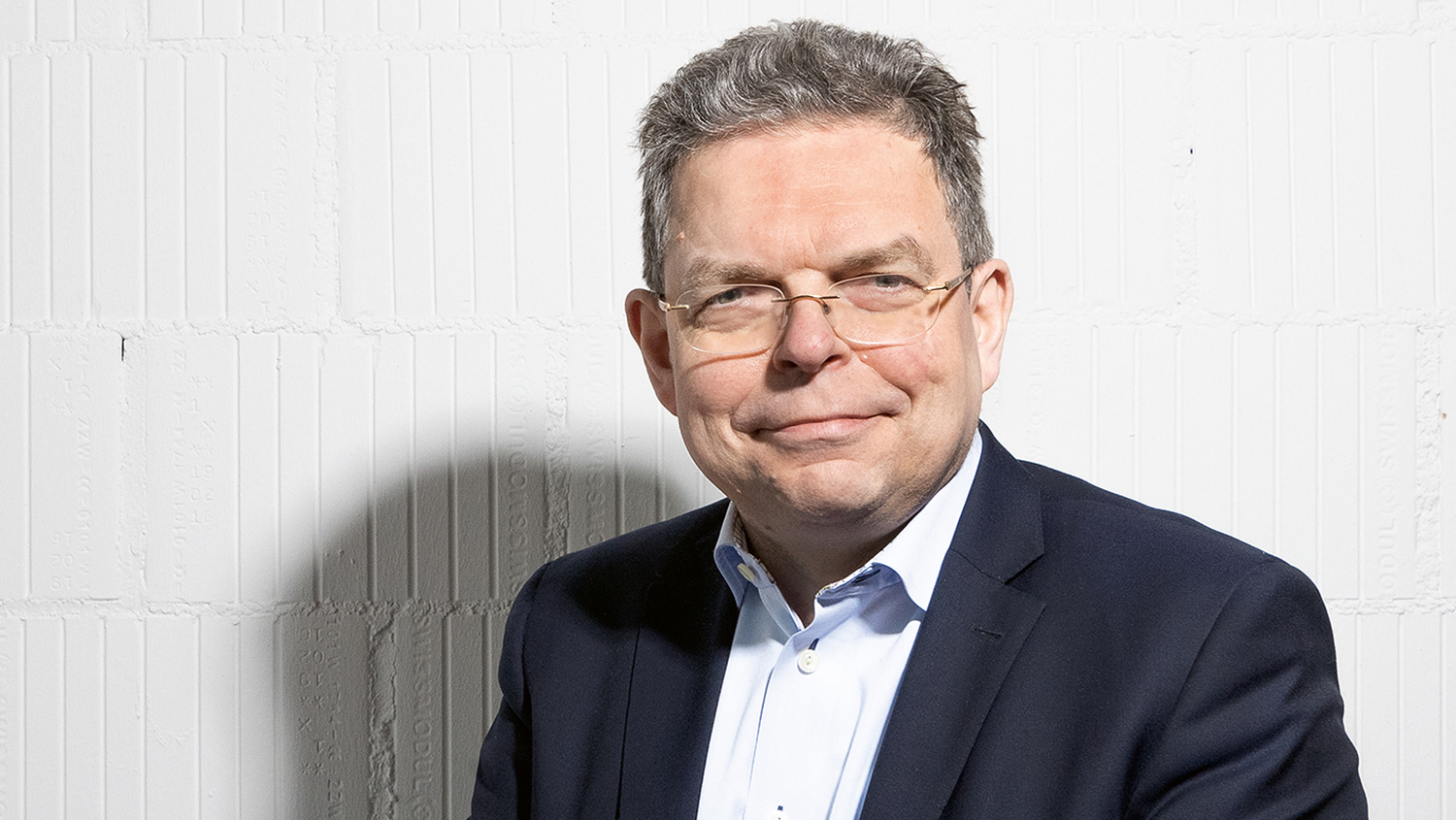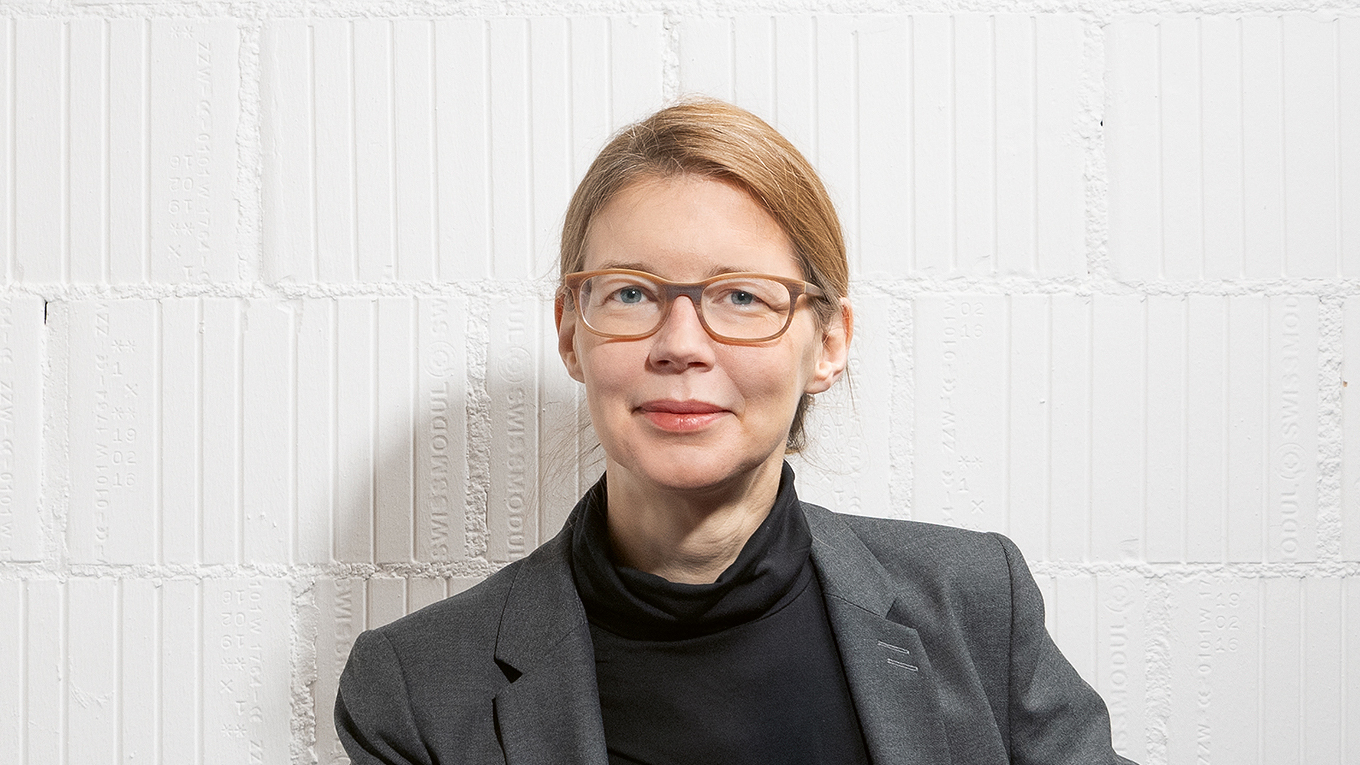Navigation auf uzh.ch
Navigation auf uzh.ch

The Humanities Initiative wants to raise the profile of the humanities and highlight their societal relevance. Otfried Jarren recently kicked off the discussion with a mission statement. Why are you part of this initiative? Could you shine some light on this from your field’s perspective?
Tatiana Crivelli: I find the topic very important, which is why I try to stimulate discussion within the Faculty of Arts and Social Sciences so that people are aware of the strengths that the humanities offer. I’m not a member of the working group, however (see info box). As a literary studies scholar, I deal with interpretation, which exemplifies the prominent role that the humanities play in today’s society – they help us understand the world in often unexpected ways. Meta-reflection and the ability to make interpretations are crucial in complex societies when it comes to what we call data and facts.
Inga Mai Groote: As musicologists, we deal with a creation that is incredibly central in all cultures. Music has always been a part of the human experience in one form or another. From a humanities perspective, the arts are particularly interesting because they open up non-verbal, symbolic spaces for exploring current social issues and challenges. The arts are a place where a different form of knowledge and understanding takes place. On a more practical level, we try to convey our findings and bring them out of academia, which in my field means bringing them to an audience, other musicians or event organizers. The Humanities Initiative is an important platform for making precisely this outflow effect from UZH more visible.
And why are you involved, Andreas Thier?
Andreas Thier: I would agree with both my colleagues. As a trained historian and legal scholar, I’m part of the humanities, but as chair of legal history and theory, I also occupy a kind of intermediary position between the social sciences and the humanities. To add to the role of the humanities just mentioned, I’d like to throw in the terms “contextual knowledge” and “freedom”. By revealing how people can and do make sense of the world, the humanities always create the necessary prerequisites for freedom. This makes the humanities essential and shines a light on how the world can be interpreted in different ways.
Now we’ve entered a paradoxical situation: There’s a lot of talk about how the humanities have lost their significance, but on the other hand, they are more important than ever in times of flux and disruption. Do you also see this discrepancy, and if so, what are the causes?
Crivelli: I’d like to contextualize this statement a bit. The humanities losing their significance is a popular journalistic shorthand, but it’s not a view that I share. To me, this is an inaccurate narrative – which, by the way, I think also applies to the lack of visibility described in the Humanities Initiative mission statement.
Groote: I would also say that this discrepancy doesn’t exist to the severe extent expressed by your question. Losing significance during times of great upheaval is a popular narrative, but that doesn’t necessarily make it true. Instead we should talk about topics like shifting resources or why certain narratives, for whatever reason, end up receiving more attention.
Thier: There’s obviously a discourse around this idea of “loss of significance” which has gained in popularity, as sketched out by Otfried Jarren. I think it’s primarily about the factors that have driven this discourse, or we could also call it a narrative. Underlying all of this is a fundamental technological transformation, with keywords like the fourth industrial revolution, the Internet of Things, or more generally speaking, digitalization – all developments that are presenting great challenges. Add on top of that the additional factor of globalization, which is bringing different worlds closer together. All of this has changed the typical benchmarks of the humanities a bit. Traditional cultural and educational hallmarks like the Latin language seem to play less of a role than they used to.
Groote: It’s exactly these kinds of debates that are inherent to the humanities and that are always taking place. Debating what concrete value the mastery of Latin poetry has in an era of music streaming doesn’t mean that the potential of the humanities’ underlying methodologies has been diminished. For that reason we need to draw a clear line between debates within a certain field and core questions of a more fundamental nature.

Still, one has the impression that some humanities scholars are somewhat jealous of all the media attention that doctors and epidemiologists are getting in times of Covid.
Crivelli: It’s clear that the medical sciences have – and have to have – a prominent role in overcoming the crisis. But it’s also just as essential to have a longer-term perspective on the historical, social and cultural factors of the pandemic – a perspective that includes the relationship between humans and their environment – meaning nature and technology. This is where the humanities and liberal arts skills come into play.
Thier: You said that we’re looking towards the medical profession with envy. No, first and foremost I’m grateful to the doctors and care professionals. But they only deal with one aspect of the world; there I agree with my colleague. Just looking at the issue of vaccines, you can already see the first overlap with humanities-related topics: ethics, for example, and the issue of how to prioritize who gets the vaccine and when. This isn’t something that the medical field alone can determine. Coronavirus is such a complex phenomenon that the humanities and their role as an interpretative discipline are relevant to just about every area.
Groote: Just a small side remark: Interestingly, The Plague by Albert Camus sold exceptionally well last year. It’s not without reason that a lot of people turn to literature to get another view on coronavirus, which fits perfectly with what my colleague just said. It’s precisely this possibility of thinking about things in new ways that sets the humanities apart.
No one doubts that the humanities can contribute to understanding the current situation, but aren’t they less prominent in the public discourse?
Crivelli: On the contrary, I find that we’re in close conversation with the public. It’s just that the humanities and their contributions are very diverse, which makes it impossible to reduce us to one uniform discipline. But paradoxically, this is precisely the key point. This diversity is what makes us so strong. It gives us the means to understand and interpret all types of complexity.
Groote: Interdisciplinary or transdisciplinary collaboration is a unifying element of the humanities. This exchange, reflection and re-illumination has at its basis a group of different voices. I would like to add as a side note that the natural sciences are by no means a homogeneous block. At the moment, vaccine researchers and epidemiologists have a big reach, but other scientists not necessarily that much. There’s also a lot of diversity there.

There are also voices in your circles calling for more empiricism, for experiential knowledge based on studies. This development is on display in the social sciences. Should the humanities also take this route?
Crivelli: I consider that problematic. By the way, we don’t work without evidence, but rather with source materials and verifiable data. We are very flexible, also when it comes to methods. But as stated before, data and facts aren’t the whole story – it’s about how you interpret them. Who can say that the experiential knowledge that we encounter in a fictional world is less important than findings based on quantitative approaches? As said before, facts and data aren’t everything. The interpretation is what’s important.
Groote: I hold the same view. You can’t understand empiricism in terms that are too narrow. There are different interpretations, and particularly in history or literature you work with experiential output, which is a different kind of empiricism. Deploying new forms of investigation is one option. But researchers have to weigh the added value that new methods would bring. This is also how I understand the Humanities Initiative mission statement, which promotes a multitude of methods.
Thier: I find it unfortunate when empirical methods are pit against hermeneutic or interpretative methods. Unfortunately, it seems to me that this has happened to some extent in the social sciences. Both belong together. A holistic approach is needed. I can say this from my own experience. My dissertation was on the history of tax law, where I would have been lost without quantitative methods for calculating things like how tax burdens were distributed.
Groote: Here we find ourselves again needing a certain distance in order to reflect properly. Also in these debates about methods, it’s about not using tools as ends in themselves.
Is digitalization more of an opportunity or a threat for the humanities?
Crivelli: Neither. At the moment, I’d describe it as more of a useful tool. In my field, for example, it’s easier to do quantitative text research using digital tools. The significance that technology will have today and in the future is an exciting and topical area of research in the humanities.
Thier: It’s also interesting to look at the rise of the field of digital humanities, which started around 10 years ago. This demonstrates clearly how digitalization has opened up new directions in the humanities. This new discipline gets its power from the fact that it can be connected to fields in all directions, inside and outside the humanities. Taking that into account, I would say that digitalization is more of an opportunity and less of a risk. But primarily it’s a challenge.

How can you convey the diversity of the humanities to people inside and outside academia?
Crivelli: Through debates like this one, for example. This is the oldest Socratic method of consistent questioning. How you convince the public that the humanities are a central part of the future is a question of methods, content and the political will of society at large. The humanities could also adopt a communications style that speaks more clearly about what we do without simplifying our research methods.
Groote: I think we actually have very good experience with managing to address ourselves to wider circles. I’m thinking for example about a topical lecture series that tackles a current issue and gets debated by colleagues representing several fields. We are also used to working in interdisciplinary groups and bringing individual voices together into a kind of polyphony to build something bigger, which then gives individual fields more attention.
Thier: Another important point is one that brings us back to the initial question of why I’m taking part in the initiative: Humanities are an important component of a comprehensive university that helps to build the institution’s identity. UZH has always made this claim, and the university also has a responsibility toward society in this regard, which is set out in its mission statement. Part of this responsibility is to create and transmit a well-rounded body of knowledge, both internally and externally. For our external impact, it’s important for the forms of knowledge we provide to speak to the public. This also applies to our research and teaching in the humanities.
Crivelli: I think we first need to emphasize the diversity of the humanities and raise our profile within the university. UZH can be proud of the researchers in its disciplines. But for our external communication to be credible, we first need to present ourselves credibly within the institution.
Groote: Here in Zurich in particular, we as a university have numerous opportunities for cultivating a dialogue with the public. The city is home to so many libraries, museums and theaters as well as musical, literary and cultural institutions, and many of us have been working with these institutions for years. It’s a win-win situation for our fields and for stakeholders outside of UZH.
The debate was first published in Journal No. 1/2021